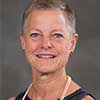Celebrating Global Connections and Collaboration
PRESIDENT’S MESSAGE
IFT has made it a priority to focus our efforts on meaningful global initiatives that address contemporary issues affecting the global food supply and food science and technology professionals. One of the areas I highlighted when elected as your president was global interests and partnerships. We’re forging partnerships around the world to advance the profession through food science education, leadership development, publications, and communications that serve as a catalyst for new ideas.
Education is a key component of our global outreach. In fact, 20% of those registered for our 2013 Annual Meeting Scientific Program were international attendees. SENAI Food Technology Institute of Brazil sent 14 participants to our Annual Meeting in Chicago as part of the international module of its MBA program. And we hosted guests from more than 80 countries!
IFT’s International Division champions the W.K. Kellogg International Food Security Award and Lectureship. It honors a food scientist working to increase access to nutritious food in nonindustrialized countries by developing emerging technologies or research. The first two recipients are Bruce Hamaker, Ph.D., Professor of Food Science at Purdue University, and Anna V.A. Resurreccion, Ph.D., CFS, Retired Distinguished Research Professor of the University of Georgia, and currently President of the RSR International Group LLC.
At our Annual Meeting in Chicago, we launched our new global leadership program, LEAD 360. Young professionals from a dozen countries took part in the workshop and immersion experience. It’s one of the many ways IFT works to enhance the future of food science by fostering the next generation of leaders.
We launched the Global Food Traceability Center with the ultimate goal of providing resources and expertise to improve the speed and accuracy of food product tracing worldwide. The center has 16 founding partners, and we all share a common desire to enhance the safety of the global food supply chain.
Publishing opportunities play a vital role in another key international partnership. We are in our fifth year of a publication agreement with the Chinese Institute of Food Science & Technology (CIFST). We wrapped up our biannual IFT/CIFST summit earlier this month in Nanjing, China, attended by IFT Past Presidents John Ruff and Herbert Stone.
We’re in the second year of our publishing collaboration with the South African Association for Food Science and Technology (SAAFoST), which publishes an article from Food Technology magazine in each quarterly edition of its magazine. I traveled to South Africa last month for the SAAFoST Congress. IFT was welcomed, and discussions about opportunities to explore further engagement were fruitful. They told me they had followed IFT’s lead with scientific posters, student and young professional involvement, and a product development competition.
Promoting food science and technology through mass communication is another main area of work for IFT. At the Argentine Association for Food Technologists (AATA) Congress, we shared our knowledge and expertise in consumer education as food science communicators. We also shared our World Without Food Science campaign and created Spanish versions of our videos. In Argentina, we met with journalists and media to promote a strong message about IFT and the wonders of food science and technology. As in the United States, we are finding increasing questioning about the food system; these media opportunities put us front and center in the food dialogue. We had one-on-one sessions with students and academic scientists—they remind us every day about why we place so much stock in support for students and young professionals and also the critical role of academics for IFT and for global education.
The CFS credential assesses applied scientific knowledge and skills of food scientists worldwide. The Canadian Institute of Food Science and Technology has partnered with IFT to support the CFS program, and Canada now has more Certified Food Scientists than any other country outside the U.S. I am one of more than 1,400 food scientists in 54 countries certified this year, and many of us in the inaugural class are leaders of the profession.
In South Africa, the CFS concept closely mirrors a government oversight certification for food scientists. We currently are working with university partners there to assess how the CFS could provide extra benefit to our South African members.
We work continually with Codex, FAO, and other international organizations by providing them with food science experts and information. Through these global partnerships, we are creating greater awareness of our webcasts and eLearning opportunities as well as our international meetings. We invite you to join us in a dialogue about partnership opportunities that would meet the IFT mission and also benefit our members!
 Janet E. Collins, Ph.D., R.D., CFS,
Janet E. Collins, Ph.D., R.D., CFS,
IFT President, 2013–14
DuPont Corporate Regulatory Affairs
[email protected]
